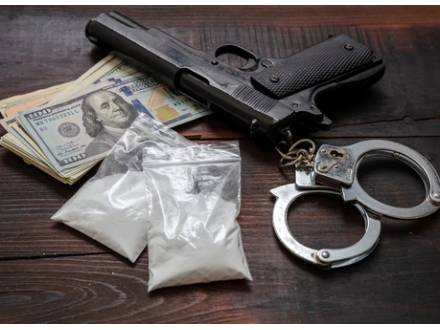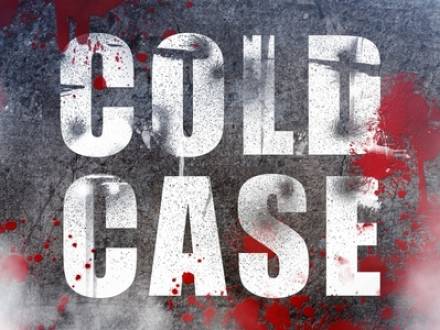Recent Blog Posts
Texas Terroristic Threat Charges: Interrupting a Public Place
 On July 4, the police were involved in chasing a man on the Dallas Love Field tarmac. The man intentionally rammed another car in the parking lot before driving through a gate at about 6 a.m., then drove through the gate onto the secured tarmac. There were no injuries involved, and the man was taken into custody and charged with making a terroristic threat that interrupts a public place, criminal trespass, and evading arrest with a vehicle.
On July 4, the police were involved in chasing a man on the Dallas Love Field tarmac. The man intentionally rammed another car in the parking lot before driving through a gate at about 6 a.m., then drove through the gate onto the secured tarmac. There were no injuries involved, and the man was taken into custody and charged with making a terroristic threat that interrupts a public place, criminal trespass, and evading arrest with a vehicle.
Making a threat in Texas can escalate quickly into a serious criminal charge. If the threat involves a public place, such as a school, church, or shopping center, the charges and penalties will be more severe. If the intent of the terroristic threat is to cause public fear, trigger an emergency response, or disrupt services, then even if no one is harmed, a single statement can lead to arrest, prosecution, and a permanent criminal record. The statement can be verbal, written, or posted online.
The Collision of Drugs and Dollars: Drugs and Money Laundering
 Earlier in the month, nearly two dozen people were charged in a major drug and money laundering arrest involving methamphetamine, heroin, and cocaine trafficking, money laundering, and weapons violations. The operation included the Houston/Galveston and Rio Grande Valley areas, stemming from long-term investigations.
Earlier in the month, nearly two dozen people were charged in a major drug and money laundering arrest involving methamphetamine, heroin, and cocaine trafficking, money laundering, and weapons violations. The operation included the Houston/Galveston and Rio Grande Valley areas, stemming from long-term investigations.
More than 170 kilos of cocaine and heroin, more than 2,000 kilos of methamphetamine, over 100 firearms, and almost $3 million in cash were seized during the operation. In Texas, drug crimes and money laundering often go hand in hand. When law enforcement uncovers a drug operation, the trail of cash is followed to build a stronger case. Both money laundering and drug trafficking, while often charged as federal crimes, can also be charged under Texas state statutes.
Texas Bail Reform Now Before the House for Consideration
 After Governor Abbott declared bail reform an "emergency" item, a bill that would deny bail to certain violent criminals has been fast-tracked and is now in the House for consideration. Senate Joint Resolution 5 passed in late February. The resolution would allow criminal court judges to refuse bail for those accused of assault with a deadly weapon, robbery, aggravated kidnapping, or murder.
After Governor Abbott declared bail reform an "emergency" item, a bill that would deny bail to certain violent criminals has been fast-tracked and is now in the House for consideration. Senate Joint Resolution 5 passed in late February. The resolution would allow criminal court judges to refuse bail for those accused of assault with a deadly weapon, robbery, aggravated kidnapping, or murder.
Most people accused of a criminal offense are afforded the right to pay a bond and remain out of jail until their trial, except those charged with capital murder. In 2021 and 2023, similar resolutions passed through the Senate but stalled out in the House. If you have questions regarding bond for a serious crime like murder, speaking to an experienced Jourdanton, TX criminal defense lawyer can be helpful.
Swatting Incident in Wisconsin Ends With Arrest in Texas
 A 20-year-old Texas man has recently been identified as the suspect in multiple swatting incidents. The man was a suspect in a swatting incident at the Horace Mann Middle School in Wausau, WI, last December and is now facing multiple counts across several counties in Texas for similar swatting incidents.
A 20-year-old Texas man has recently been identified as the suspect in multiple swatting incidents. The man was a suspect in a swatting incident at the Horace Mann Middle School in Wausau, WI, last December and is now facing multiple counts across several counties in Texas for similar swatting incidents.
The Wisconsin incident resulted in the school being evacuated. The young man was arrested three days after that incident in Granbury, Texas. Swatting is a criminal offense that appears to be increasing in frequency. It occurs when a prank call is made to deliberately trigger a large law enforcement response.
The callers usually indicate some type of threat to public safety. Making prank calls to law enforcement is rarely taken lightly, as these false calls take resources away from those who may actually need them. If you have been charged with swatting, it is important that you speak to an experienced Floresville, TX criminal defense attorney.
How Much Trouble Could My Teen Be in for Sexting?
 When nude photos are exchanged via digital media (text, email, messenger apps), it is known as "sexting." If both parties to the exchange are legally adults, and it is consensual, then there is no crime. Teens who engage in sexting may not think they are doing anything that could result in criminal charges, but this is not the case.
When nude photos are exchanged via digital media (text, email, messenger apps), it is known as "sexting." If both parties to the exchange are legally adults, and it is consensual, then there is no crime. Teens who engage in sexting may not think they are doing anything that could result in criminal charges, but this is not the case.
If one or both parties involved in the sexting are minors, there could be juvenile criminal prosecution. Parents who find their teens have either been sending, receiving, or forwarding sexually explicit photos may be dismayed about the behaviors, but the fact that the teen could be criminally charged and prosecuted is even more distressing.
Sexting laws differ substantially from one state to the next. If your teen has been charged with sexting, take these charges very seriously by contacting an experienced Pleasanton, TX criminal defense lawyer. A conviction for sexting can have a wide array of collateral consequences, as well as the immediate threat of loss of freedom.
How Charges of Corporate Fraud Can Alter Your Future
 In December 2024, a 55-year-old Texas title company employee admitted to orchestrating a $350,000 real estate wire fraud scheme. The woman admitted to participating in a scheme that used deceptive email, fraudulent warranty deeds, and falsified lien payoff statements to mislead property buyers, title companies, and lenders over a four-year period.
In December 2024, a 55-year-old Texas title company employee admitted to orchestrating a $350,000 real estate wire fraud scheme. The woman admitted to participating in a scheme that used deceptive email, fraudulent warranty deeds, and falsified lien payoff statements to mislead property buyers, title companies, and lenders over a four-year period.
Using her position of trust, the woman facilitated closings backed by falsified documents. The crime was charged and prosecuted federally. Sentencing will take place in March. The potential sentence is up to 20 years in federal prison and a maximum fine of $250,000. Real estate wire fraud is one example of corporate fraud.
The Enron scandal from 2001 is an example of corporate fraud. Corporate fraud can be difficult to detect, and too often, the wrong person is accused of the crime because of the ease with which one employee can use another’s computer. If you have been charged with corporate fraud, you should take the charges very seriously by speaking to a knowledgeable Pleasanton, TX white-collar criminal attorney.
Seven Teens Arrested for a String of Austin Crimes
 Seven teens in the Austin area were allegedly involved in a string of auto thefts, business burglaries, and violent carjackings. The crime spree lasted for two days, after starting on January 12th. Some of the alleged crimes include the carjacking of a security officer, a burglary of the Tiny Pies Bakery, The Gents Place, and a vape shop, one failed carjacking, a stolen car in Travis County, the carjacking of a Honda Civic, and multiple vehicle pursuits.
Seven teens in the Austin area were allegedly involved in a string of auto thefts, business burglaries, and violent carjackings. The crime spree lasted for two days, after starting on January 12th. Some of the alleged crimes include the carjacking of a security officer, a burglary of the Tiny Pies Bakery, The Gents Place, and a vape shop, one failed carjacking, a stolen car in Travis County, the carjacking of a Honda Civic, and multiple vehicle pursuits.
Two of the suspects are seventeen years old, while the other five are younger. The investigation is ongoing. As a parent, it can be extremely difficult to know what to do when your teen is involved in juvenile crimes. What happens now can affect his or her life for a very long time to come, so it is especially important to speak to a knowledgeable Karnes City, TX juvenile crimes attorney.
Challenges Associated with Defending a "Cold" Murder Case
 A man was recently indicted on capital murder charges stemming from a 1980 Austin, TX cold case. At the time of the Texas indictment, the 78-year-old man was incarcerated in a Massachusetts jail. The Austin case involved the kidnapping and murder of a 25-year-old woman who was walking to her friend’s house at the time of the kidnapping.
A man was recently indicted on capital murder charges stemming from a 1980 Austin, TX cold case. At the time of the Texas indictment, the 78-year-old man was incarcerated in a Massachusetts jail. The Austin case involved the kidnapping and murder of a 25-year-old woman who was walking to her friend’s house at the time of the kidnapping.
The cause of death was a gunshot wound to the head, yet there were no leads in the case for more than 40 years. DNA swabs taken while the man was incarcerated in Massachusetts matched the DNA found at the scene of the Austin crime. Solving a cold case – particularly one this old – can be incredibly challenging. While a "regular" case may have fresh evidence and witnesses, this is rarely true for a cold case.
If you have been charged with murder for a crime that happened many years ago, it is extremely important that you have a highly skilled criminal defense attorney. Speaking to an experienced Karnes City, TX criminal defense attorney can make a difference in the outcome of your charges, whether they are for a recent crime or a crime that happened years ago.
Can My Child Be Charged Over a Social Media Prank?
 As social media has become a part of daily life, it has also become a hotbed of bullying and harassment. Young people who use online platforms are especially prone to this, and actions that may be intended as mere "pranks" can end up causing serious harm. According to some estimates, people under 25 who are subjected to cyberbullying are more than twice as likely to engage in suicidal behaviors or other self-harm. Some have even coined the term "cyberbullicide" to refer to suicide linked to cyberbullying.
As social media has become a part of daily life, it has also become a hotbed of bullying and harassment. Young people who use online platforms are especially prone to this, and actions that may be intended as mere "pranks" can end up causing serious harm. According to some estimates, people under 25 who are subjected to cyberbullying are more than twice as likely to engage in suicidal behaviors or other self-harm. Some have even coined the term "cyberbullicide" to refer to suicide linked to cyberbullying.
Texas has strict laws about harassment on social media, particularly among youth. Your child may believe he or she is playing an innocent prank on a classmate, but it could be considered a criminal offense. Depending on the nature and outcome of the prank, it could fall under either harassment or cyberbullying. In either case, your child may face charges as a juvenile, which can result in penalties such as fines and even jail time. Make sure you contact an experienced Texas juvenile criminal defense attorney right away if your child is facing online harassment charges.
What Are the Legal Defenses Against a Trespassing Charge?
 Trespassing is a crime that carries a range of penalties depending on the circumstances. A trespassing conviction can involve hefty fines and jail time, which is why being charged with the offense can be a frightening experience. This is particularly true if you did not mean to trespass, which is fairly common. In this article, we will explore what trespassing is, the penalties for the crime, and the legal defenses against a trespassing charge. If you are facing accusations of trespassing, be sure to contact a Texas criminal defense attorney who can build a solid defense.
Trespassing is a crime that carries a range of penalties depending on the circumstances. A trespassing conviction can involve hefty fines and jail time, which is why being charged with the offense can be a frightening experience. This is particularly true if you did not mean to trespass, which is fairly common. In this article, we will explore what trespassing is, the penalties for the crime, and the legal defenses against a trespassing charge. If you are facing accusations of trespassing, be sure to contact a Texas criminal defense attorney who can build a solid defense.
What Is Trespassing?
According to Texas law, trespassing is when a person enters someone else’s property without consent knowing that it is forbidden to do so. Even if the individual is not aware that it is forbidden but refuses to leave the property after being given notice, it is still considered trespassing.



 830-769-1010
830-769-1010








